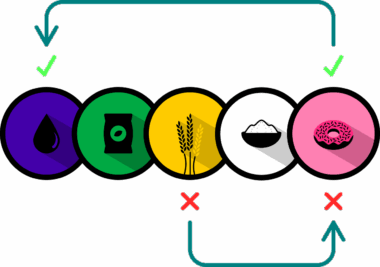Ensuring Supplier Accountability Through Ethical Standards
In today’s competitive business landscape, ethical standards are increasingly vital for establishing strong supply chains. Companies prioritizing ethical behavior not only benefit their reputation but also contribute to sustainability and social responsibility. This responsibility extends across the whole supply chain, impacting sourcing, production, transportation, and distribution. An understanding of ethical guidelines is essential for supplier relations, ensuring that businesses partner with suppliers who align with their values. Meeting ethical standards can provide a level of accountability necessary for long-term success.
Incorporating ethical standards into supplier evaluation processes helps companies choose trustworthy partners. This involves auditing suppliers to check compliance with labor laws, environmental regulations, and fair trade practices. Regular assessments reinforce the commitment to ethical sourcing, pushing suppliers to maintain high standards. Furthermore, organizations should clearly communicate their ethical requirements, ensuring suppliers understand expectations. The establishment of robust contracts supporting ethical practices can mitigate risks within the supply chain and promote transparency among all parties involved.
Promoting Transparency and Accountability
Transparency is a core component in ensuring supplier accountability. By openly sharing information regarding sourcing practices, businesses build trust with consumers, enhancing brand loyalty. Implementing traceability in the supply chain allows stakeholders to track materials and components, ensuring they meet ethical criteria. This promotes confidence in the integrity of products while pushing suppliers to maintain responsible practices. Engaging with third-party audits can further secure transparency within the supply chain, demonstrating a proactive approach and commitment to ethical standards.
Training and workshops focusing on ethical practices can further solidify supplier relationships. By investing in supplier education, businesses foster a collaborative environment for ethical improvements. Suppliers educated on ethical regulations are better equipped to comply and innovate practices. Moreover, establishing an open dialogue regarding ethical challenges authentically builds partnerships. Regular check-ins with suppliers can create supportive mechanisms for addressing any ethical dilemmas. By embedding ethical discourse into regular operations, companies can promote accountability down their supply chains.
The Role of Technology in Supply Chain Ethics
Advancements in technology provide significant assistance in promoting ethical standards across supply chains. Tools like blockchain can create a secure and transparent record of product journeys, allowing all participants in the supply chain to verify ethical practices. Additionally, Artificial Intelligence (AI) can streamline supplier compliance checks, helping organizations quickly identify risks. This integration of technology fosters an ethical discourse among suppliers and enhances accountability measures. As businesses adopt these innovations, they strengthen their commitment to ethical standards and safe practices.
Supplier collaboration on ethical practices can greatly influence overall supply chain effectiveness. This entails working closely with suppliers to develop mutually beneficial frameworks for ethical accountability. Implementing feedback loops, where suppliers provide insights on ethical challenges, can lead to improved strategies over time. Engaging with stakeholders in shared initiatives can promote ethical conduct throughout the network. Ultimately, a collaborative approach cultivates a culture focused on maintaining high standards, producing better results across the supply chain.
Measuring Success in Supplier Ethics
Measuring the success of implemented ethical standards is crucial for long-term improvement. Businesses should establish metrics that quantify the impact of ethical practices within their supply chain. Metrics may include supplier compliance rates, ethical incident reports, and consumer satisfaction. Regularly assessing performance can help identify opportunities for improvement. It will allow businesses to celebrate milestones and adjust strategies as necessary. Continual evaluation promotes an agile approach to maintaining ethical accountability within the supplier base.
In conclusion, fostering supplier accountability through ethical standards creates a robust and reliable supply chain. Organizations must recognize the importance of maintaining high ethical standards while consistently evaluating practices. By prioritizing transparency, investing in training, and adapting to technological advancements, companies can enhance supplier accountability. The commitment to ethical business practices will ultimately resonate with consumers and position organizations for future growth, ensuring they remain competitive in an ever-evolving market. Upholding ethics in supply chain management paves the way for sustainable success.





